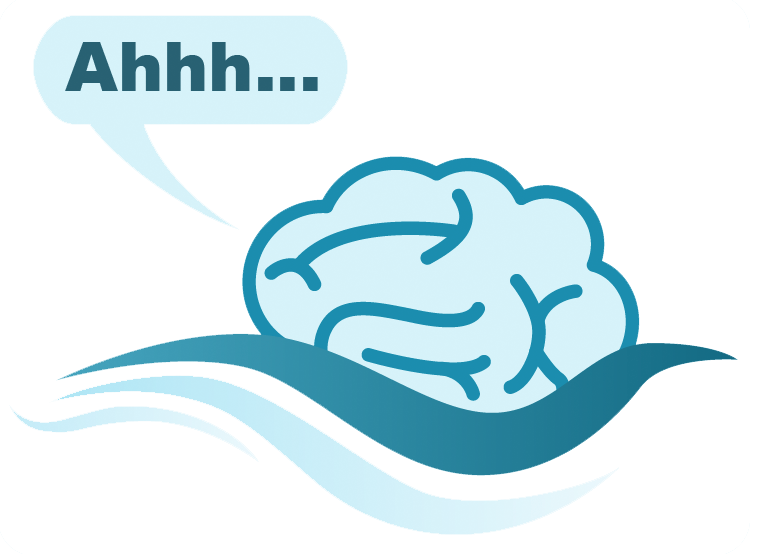The search for pain relief can drive people in many unexpected, and sometimes downright odd, directions – float tanks among them. With the high concentration of Epsom salt, the tank can fully support the body without any areas of pressure on your back. This alone has been shown to help with inflammation reduction, faster recovery times, and general pain management, which helps explain why many big-name athletes and sports teams (like Steph Curry, Tom Brady, the Seahawks, the Dodgers, the Cubs, and many more) incorporate floating into their recovery programs.
Beyond physical recovery, floating has also been shown to have many positive mental effects, such as reducing anxiety and depression, while increasing energy levels and serenity. These particular benefits have been backed by scientific research, but since floating is still a largely under-researched field, many of the stories that claim benefits from floating haven’t been explored through official studies. There are, however, some benefits that are being explored through smaller scale research programs and case studies that, while not official, show promise and can help lead to new findings and larger scale studies in the future.

One of these areas of exploration is that of traumatic brain injuries (TBIs), and specifically concussions. Concussions can have a variety of symptoms: a foggy mind, forgetfulness, trouble concentrating, increased sensitivity to external stimulation, as well as many others.
The positive impact of floating on TBIs, and especially on concussions, is of great interest to me, and is one of the main reasons I pursued a job in this industry. I suffered multiple concussions over my life, and during my twenties the long-term effects to my brain were beginning to get more intense. From my first concussion at age 5, to the most recent at age 20, the symptoms began to compound: more brain fog, more forgetfulness, an overall feeling of being oblivious to my surroundings… the list goes on.
Possibly the worst problem for many people with concussions is that, as a result of dealing with these symptoms for so long, they don’t realize that anything is wrong, and so never seek treatment. It wasn’t until I began floating, and seeing improvements in so many areas of my life, that I began to recognize just how much my quality of life had been impacted by the 7 concussions I received over roughly 15 years.
With consistent floating, my symptoms calm down: my mood is better, I’m not as forgetful, and I feel more mindful. Each moment doesn’t pass so fast. However, when I float less often, my issues flare up again. Put simply, my quality of life has improved tremendously, and I credit that to floating.
There are many other anecdotal stories out there of floating being helpful for traumatic brain injuries. One customer shared his story of how floating helped with his own TBI. Prior to floating, he found he needed more rest than what his (often restless) sleep at night could provide to maintain his mental clarity. Naps added some relief, but further messed up the already discombobulated sleep cycle he was dealing with. He said that, “from day one, [floating] has been really helpful as a way of resting my brain and letting it heal.” He mentioned how, even if he falls asleep in the tank, his sleep at night is not interrupted. Instead, he finds it much easier to slip into a restful sleep on days where he’s rested in the float tank, and he, like myself and many others, feels that floating has helped to alleviate many of the negative symptoms of his TBI.

A few more rigorous case studies on the benefits of floating for those who have suffered a TBI have been conducted by Dr. David Berv out of Richmond, VA. In one case study done by Dr. Berv, a subject with long term effects from their TBI (10 years) began to see improvements mentally after only a 3-month float program. Energy and motivation levels increased, while feelings of depression saw a decrease. This was similar to my own timeline of improvement after I began to float regularly.
Another of Dr. Berv’s TBI case-studies saw similar results. There were improvements in fatigue and brain fog, and decreased headaches, confusion, and sleep disturbances. Both of these case studies came to the same conclusion: floating is a promising tool for improving emotional, cognitive, and behavioral functioning after suffering a TBI, even years after the injury initially took place.
As floating grows more popular, stories like these continue to emerge, and while some of these benefits are spread through word of mouth (and occasional blog posts) to other floaters, with luck eventually they will reach a scientist curious enough to investigate. In the future, we will hopefully see funded studies specifically on the benefits floating can provide to people suffering from symptoms of their brain injuries. This could lead to a world where those with head trauma can find relief, apart from prescribed medication. Having played football for so long, I wonder how we can assist those who have suffered even more concussions than I did in my youth – floating could be an answer, but more research is needed.
Regardless, hearing all these wonderful stories of recovery makes me excited. So little is known about the brain, and new discoveries can come from the most unexpected of places – like an oversized, salt-saturated, neutral-temperature bathtub.
